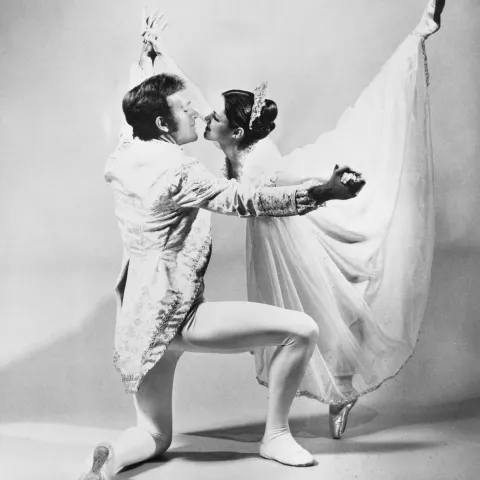South Carolina ETV looks back at four installments from SCETV’s public affairs series, Capitol View, featuring the late Senator Kay Patterson. These interviews were recorded in 1987, 1989, 1990 and 1991, during Sen. Patterson’s service in the SC Legislature, initially in the House from 1975-1985 and later in the Senate from 1985-2007.
Senator Kay Patterson (March 12, 1987)
In his first term as a Senator, Sen. Kay Patterson is interviewed by Sheila Johnson-Chaney. Senator Patterson discusses his reasons for running and says that he always volunteered in the community, served on voter registration drives, etc., and that two friends, Representative Jim Felder and Representative I.S. Leevy Johnson were elected, and that I.S. Leevy Johnson was a former student of his from C.A. Johnson High School. When he saw that they had been elected, he decided he should run.
Senator Patterson discusses current issues in the Legislature, including his view that the House or Senate members should not accept invitations as a group from segregated clubs. At the same time, there is controversy about golf teams being invited to play at segregated private golf clubs. USC will now hold the tournament at a public golf course. The Confederate Flag discussion is continuing and Senator Patterson thought a compromise could be worked out with the Sons of Confederate Veterans to remove the flag from the dome and out of the chambers, display it in the lobby or on a flagpole in front of the Confederate monument.
In this session, Senator Patterson’s priorities include the 10 percent set-aside for Black contractors for highway construction contracts. However, women have now been included as a minority.
Constituents are interested in the discussion about schools being merged and school lines being redrawn and are interested in holding a referendum. He believes in serving constituents in his district.
Senator Kay Patterson (March 23, 1989)
Interviewed by Tom Fowler, Senator Patterson discusses passage of the Seat Belt Law, and states that they are awaiting the budget debate. He states that by and large, he is pleased with the appointments. However, he points out that Gov. Campbell has appointed strictly Republicans to all boards and commissions. Sen. Patterson considers this to be his right, but for equity and fairness, he believes the governor should appoint the majority from his party but leave the balance to the other party. He pointed out that Gov. Edwards appointed his people but left room for both parties.
Sen. Patterson discusses the 10 percent set-aside for federal contracts and state-awarded contracts for highway construction. He states that all they are asking is for 10 percent of the contracts for minorities, but with 5 Black Senators out of 46, and 16 Black Representatives out of 124, that’s 21 out of 170 speaking for Blacks.
Senator Kay Patterson (April 18, 1990)
Interviewed by Tom Fowler, Senator Patterson discusses the Fair Housing bill, and he commends the governor for stating in his inaugural address that racism will not be tolerated in South Carolina.
The budget is under consideration, and the election of judges has given us a second Black circuit court judge out of about thirty-three judges.
Senator Patterson discusses Reapportionment. As the chairman of the SC Legislative Black Caucus, Patterson states how important it is for there to be a Black representative to represent the third of the population who are Black. The SC General Assembly will draw up all SC House districts, Senate districts, and all six Congressional districts, for approval by the Department of Justice.
He also discusses District 19, which is 57 percent Black, formerly represented by Sen. I DeQuincey Newman, who resigned due to his health and Sen. Patterson was then elected.
Senator Kay Patterson (March 26, 1991)
Senator Patterson is interviewed by Tom Fowler. Senator Patterson served in the House from 1975-1985 and in the Senate until 2007.
Senator Patterson discusses Ethics Reform and brings up the many issues that have come up, and the animosity and divisiveness that have resulted. However, he believes they will come up with a compromise that the governor and both the House and the Senate can live with.
They also discuss Reapportionment. Patterson points out that Blacks make up a third of the population and with six representatives, Blacks are entitled to two representatives in Congress.


